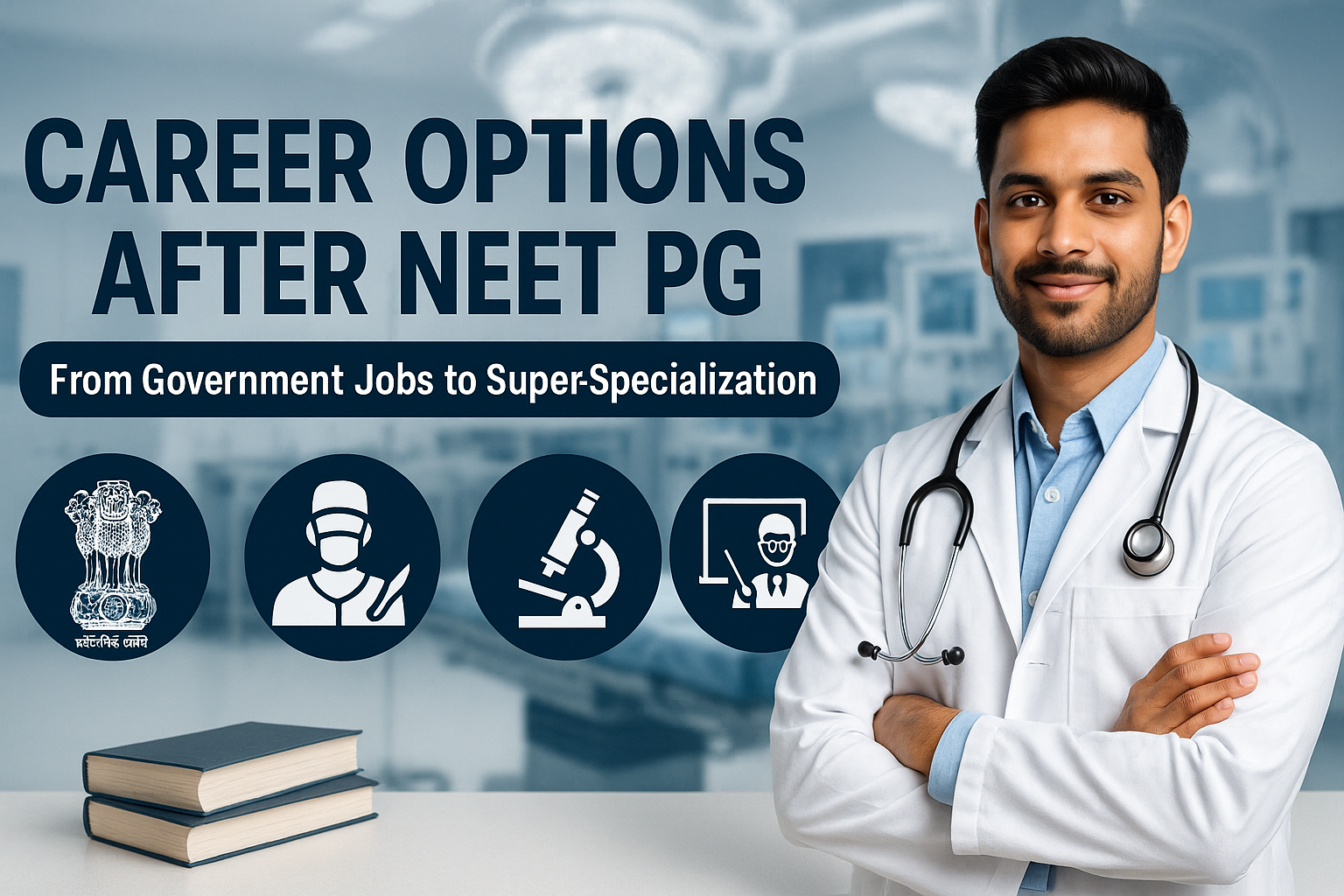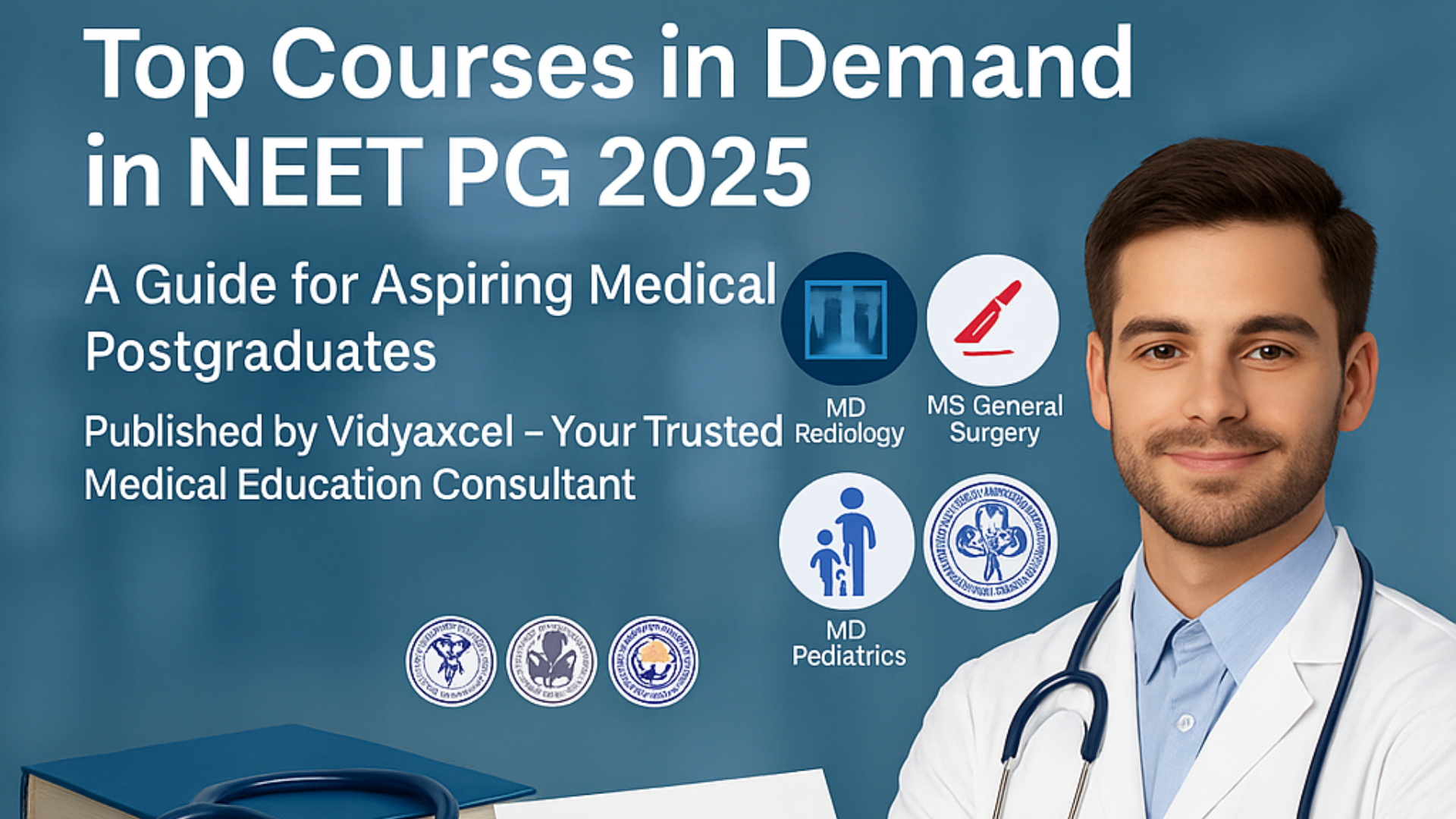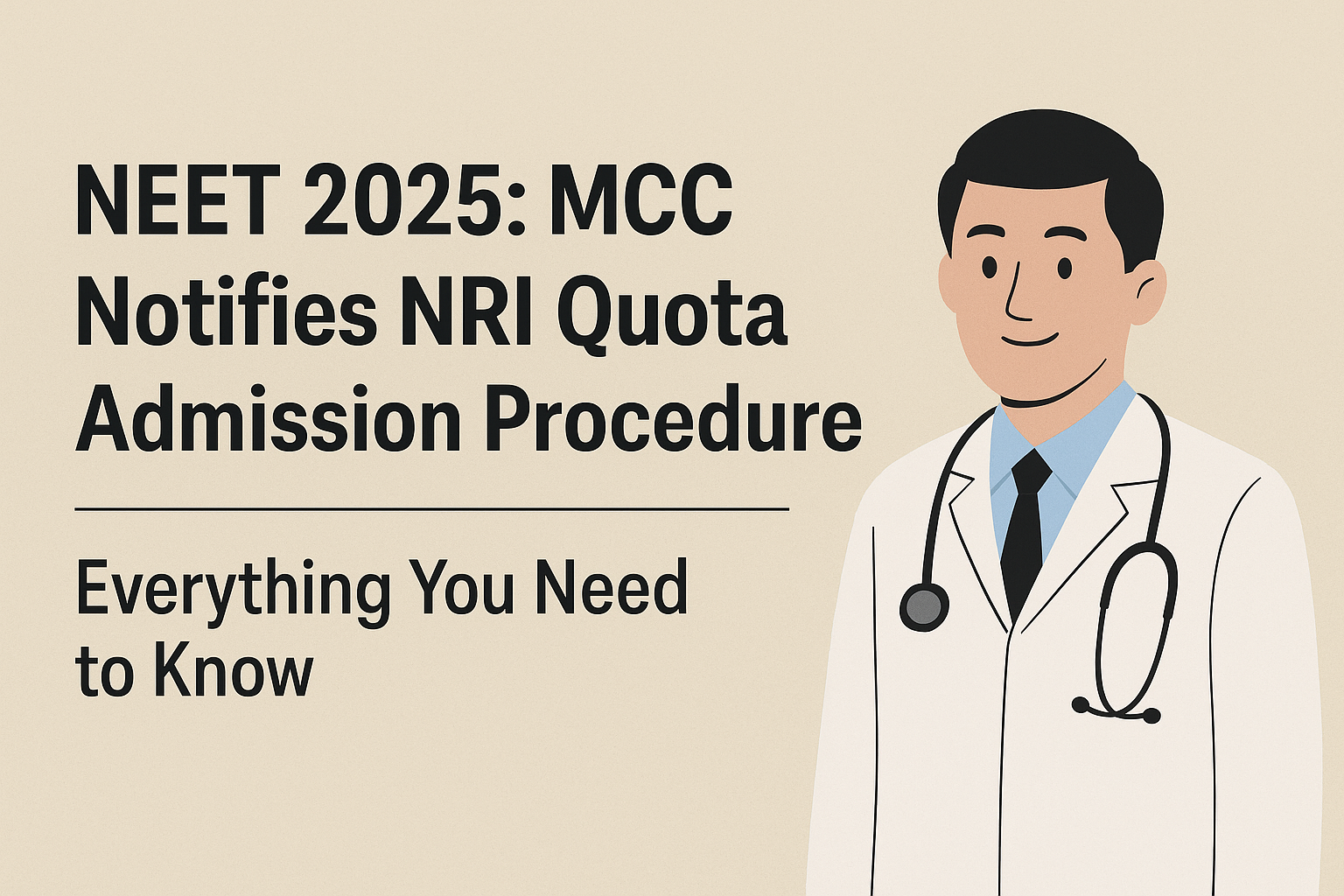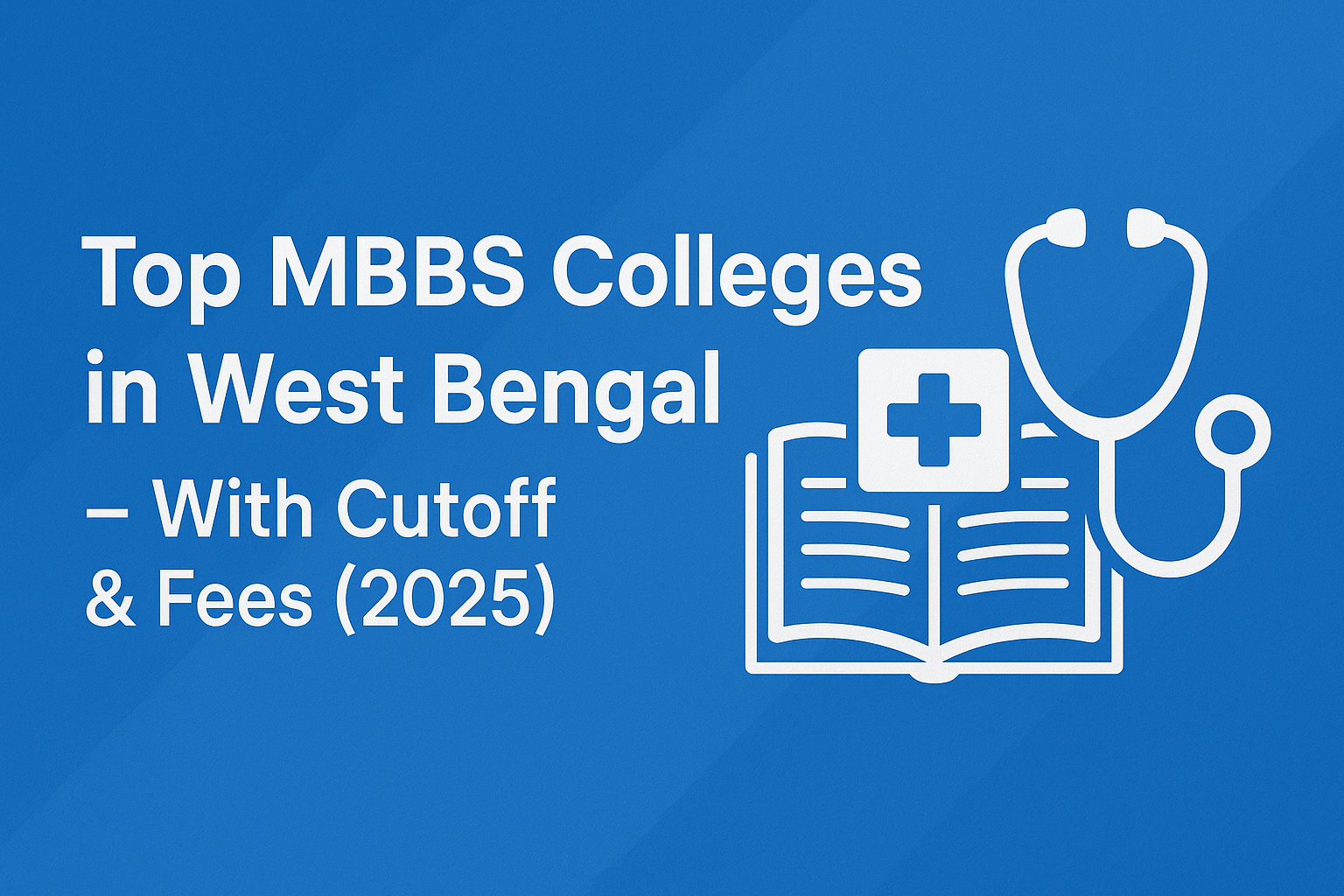+91 8910935399 / +91 9831894303

NEET PG is the stepping stone for medical graduates aiming to pursue a postgraduate medical degree in India. After clearing NEET PG, many students opt for MD/MS or DNB courses. But what lies beyond that? Is MD/MS the final destination? Not at all. The road ahead offers numerous opportunities—from super-specialization to prestigious government jobs and international options.
In this blog, we’ll explore the key career options after NEET PG, helping you make an informed decision about your future in medicine.
1. Super-Specialization: DM/MCh
📌 What is DM/MCh?
After completing MD (Doctor of Medicine) or MS (Master of Surgery), doctors can go for super-specialization through DM (Doctorate of Medicine) or MCh (Magister Chirurgiae).
🔍 Key Points:
DM is pursued after MD in subjects like Cardiology, Neurology, Endocrinology, etc.
MCh is pursued after MS in fields like Neurosurgery, Cardiothoracic Surgery, Urology, etc.
Admission is through the NEET SS (Super Specialty) exam.
✅ Why Choose This?
You become an expert in a niche area.
Demand is high in both private and government hospitals.
Opportunity to work in top-tier institutions.
2. Diplomate of National Board (DNB)
📌 What is DNB?
DNB is an equivalent alternative to MD/MS, conducted by the National Board of Examinations (NBE). After DNB, you can pursue DNB Super-Specialty (DNB-SS) or fellowship programs.
🔍 Key Points:
DNB courses are offered in both government and private hospitals.
Some medical colleges accept DNB qualification for teaching jobs.
DNB SS entrance is also via NEET SS.
✅ Why Choose This?
DNB-qualified doctors are recognized at par with MD/MS in most institutions.
Ideal for those who missed out on MD/MS but still want a rewarding PG qualification.
Opens pathways to fellowships and super-specializations.
3. Government Sector Jobs (UPSC, State Services, and More)
📌 UPSC CMS (Combined Medical Services)
One of the most prestigious exams for doctors in India, UPSC CMS opens doors to jobs in:
Central Government Health Services (CGHS)
Railways
Indian Ordnance Factories
Municipal corporations and other departments
🔍 Key Points:
Eligibility: MBBS (You can apply even if you’ve done PG).
Selection includes a written test and interview.
Fixed working hours and job security.
✅ Why Choose This?
Stable government job.
Opportunity to serve in public health.
Good work-life balance and pension benefits.
📌 Other Government Jobs:
State PSC Medical Officer roles.
ESIC, AIIMS, Railways, and Defence Services recruit PG doctors for specialist roles.
Medical teaching posts in government medical colleges.
4. Teaching and Academic Roles
📌 After MD/MS/DNB
If you enjoy teaching and mentoring, you can apply for:
Assistant Professor positions in medical colleges.
Tutor roles in private or government institutions.
🔍 Key Points:
Requires MCI/NMC recognized qualification.
Opportunity to pursue a PhD or research work.
✅ Why Choose This?
Academic satisfaction.
Regular hours.
A blend of clinical practice and teaching.
5. Fellowship Programs (India & Abroad)
📌 Fellowship Options:
Various fellowships are available in India and abroad in specialties like:
Pain Medicine
Cosmetic Dermatology
Sports Medicine
Maternal-Fetal Medicine
Critical Care
🔍 Organizations Offering Fellowships:
Indian Medical Association (IMA)
Apollo, Fortis, Medanta, etc.
International institutions (UK, USA, Australia)
✅ Why Choose This?
Tailor your career to specific interests.
Gain exposure to cutting-edge medical technologies.
Enhance your CV with international credentials.
6. Private Practice and Hospital Jobs
📌 Options:
Join private hospitals as a consultant.
Start your own clinic or polyclinic.
Become part of a hospital group or corporate healthcare chain.
🔍 Areas in Demand:
Radiology
Dermatology
Gynaecology
Psychiatry
General Medicine
✅ Why Choose This?
High income potential.
Independence and flexibility.
Long-term career growth.
7. International Opportunities
📌 Countries with Openings:
UK (PLAB + GMC Registration)
USA (USMLE)
Australia (AMC Pathway)
Germany (Language + Clinical Approbation)
🔍 Key Points:
Requires specific licensing exams and visa processes.
May require language proficiency (e.g., German B2/C1).
Competitive salaries and advanced training.
✅ Why Choose This?
Exposure to global healthcare standards.
Higher earning potential.
Opportunities for research and innovation.
8. Research and Clinical Trials
📌 Career Roles:
Clinical Research Associate (CRA)
Medical Writer
Epidemiologist
Research Scientist
🔍 Institutes Involved:
ICMR
WHO
Pharma companies like Novartis, Pfizer, etc.
✅ Why Choose This?
Non-clinical, intellectually stimulating work.
Scope to publish in journals, contribute to new therapies.
Attractive packages in pharma sector.
9. Hospital Administration and Healthcare Management
📌 Career Path:
Doctors can transition into management roles by pursuing:
MBA in Hospital Management
Master’s in Public Health (MPH)
🔍 Roles You Can Take Up:
Medical Superintendent
Quality Manager
Healthcare Consultant
✅ Why Choose This?
Leadership positions.
Broad impact on patient care systems.
Opportunity to innovate in hospital processes.
Conclusion
NEET PG opens the door to many career avenues, but it’s what you do after PG that shapes your ultimate journey. Whether you choose to super-specialize, serve in the government, teach, manage, or move abroad, each path has its own challenges and rewards. Evaluate your interests, lifestyle goals, financial needs, and passion areas before deciding your next move. Remember, in medicine, the learning—and the opportunities—never stop.
FAQs: Career After NEET PG
1. Is DM/MCh better than MD/MS?
DM/MCh is a super-specialization that allows you to become an expert in a narrow field. It’s not “better,” but more specialized. It depends on your career goals.
2. Can I work abroad after completing MD/MS in India?
Yes, but you may need to pass qualifying exams like PLAB (UK), USMLE (USA), or AMC (Australia), and fulfill licensing requirements.
3. Are DNB and MD/MS considered equal?
Yes, according to the NMC, both are treated equally for practice and academic jobs, though DNB from non-teaching hospitals may have limitations for teaching roles.
4. Can I appear for UPSC CMS after NEET PG?
Yes, any MBBS graduate (with or without PG) can appear for UPSC CMS.
5. What is the average salary after NEET PG?
It varies. Government jobs may start at ₹80,000–₹1 lakh/month, while private hospitals and super-specialists may earn significantly more based on their experience and location.






 Posted by : Vidyaxcel
Posted by : Vidyaxcel



